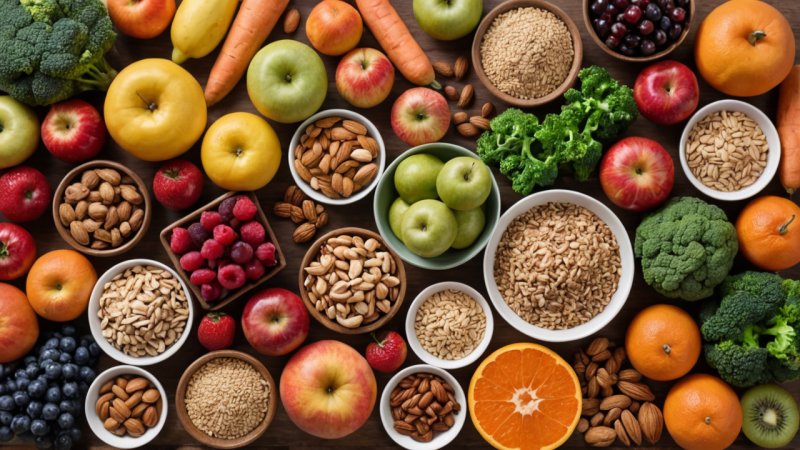Nutrition plays a pivotal role in our overall health, particularly in cognitive function. A balanced diet not only fuels our bodies but also significantly impacts how our brains operate. This article explores the importance of balanced diets for cognitive function, highlighting how specific nutrients can enhance brain health, improve memory and concentration, and reduce the risk of cognitive decline. Here are five key points to consider when it comes to the connection between diet and brain performance.
1. Omega-3 Fatty Acids for Brain Health
Omega-3 fatty acids are essential fats that our bodies cannot produce on their own. They are crucial for brain function and development. Here’s why they matter:
- Improved Memory: Omega-3s, particularly DHA, are vital for maintaining the structure of brain cells, which enhances memory and learning.
- Reduced Inflammation: These fatty acids help reduce inflammation, which is linked to neurodegenerative diseases.
- Sources: Incorporate fatty fish like salmon, walnuts, and flaxseeds into your diet to boost your omega-3 intake.
2. Antioxidants to Combat Oxidative Stress
Oxidative stress can damage brain cells and impair cognitive function. Antioxidants help neutralize free radicals and protect the brain. Consider the following:
- Fruits and Vegetables: Berries, spinach, and kale are rich in antioxidants that support brain health.
- Vitamin E: Found in nuts and seeds, vitamin E is known for its neuroprotective properties.
- Colorful Plates: Eating a variety of colorful fruits and vegetables ensures a broad spectrum of antioxidants.
3. Whole Grains for Sustained Energy
Whole grains provide a steady source of energy, which is essential for optimal brain function. Here’s how they contribute:
- Glucose Supply: The brain relies on glucose as its primary energy source, and whole grains release glucose slowly into the bloodstream, providing sustained energy.
- Fiber Benefits: High-fiber foods help regulate blood sugar levels, which can improve focus and concentration.
- Examples: Include oats, brown rice, and quinoa in your meals for a brain-boosting energy source.
4. Hydration and Cognitive Function
While often overlooked, hydration is crucial for cognitive function. Dehydration can lead to cognitive decline. Consider the importance of staying hydrated:
- Brain Composition: The brain is composed of about 75% water, and adequate hydration is necessary for optimal function.
- Focus and Concentration: Even mild dehydration can impair attention and long-term memory.
- Hydration Sources: Aim to drink enough water throughout the day and consume foods with high water content, such as fruits and vegetables.
5. The Role of Micronutrients
Vitamins and minerals, often referred to as micronutrients, play a significant role in brain health. Here’s how they contribute:
- B Vitamins: Essential for energy production and cognitive function, B vitamins can be found in leafy greens, eggs, and legumes.
- Iron and Zinc: Both minerals are crucial for oxygen transport and neurotransmitter function. Incorporate lean meats, beans, and nuts for adequate intake.
- Balanced Diet: A well-rounded diet rich in various vitamins and minerals supports overall brain health.
In conclusion, a balanced diet is fundamental for enhancing cognitive function and overall brain health. By incorporating omega-3 fatty acids, antioxidants, whole grains, proper hydration, and essential micronutrients into your diet, you can significantly boost your cognitive abilities and protect against cognitive decline. Making mindful dietary choices not only nourishes your body but also empowers your mind, allowing you to think more clearly and perform at your best.






